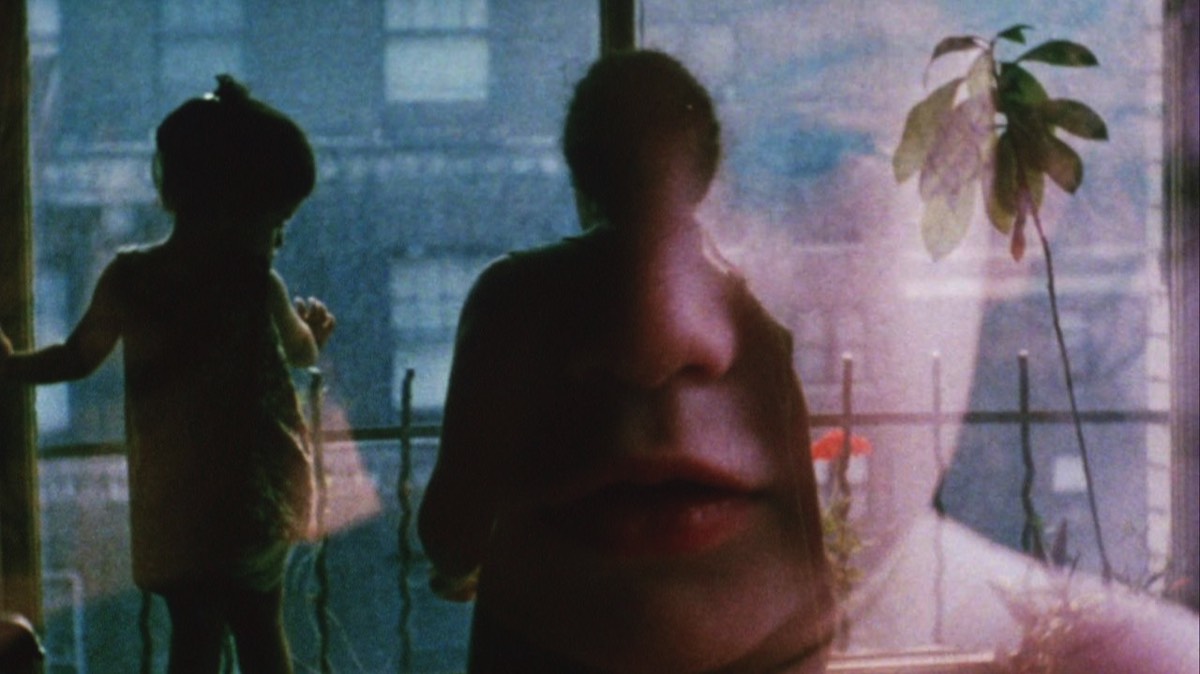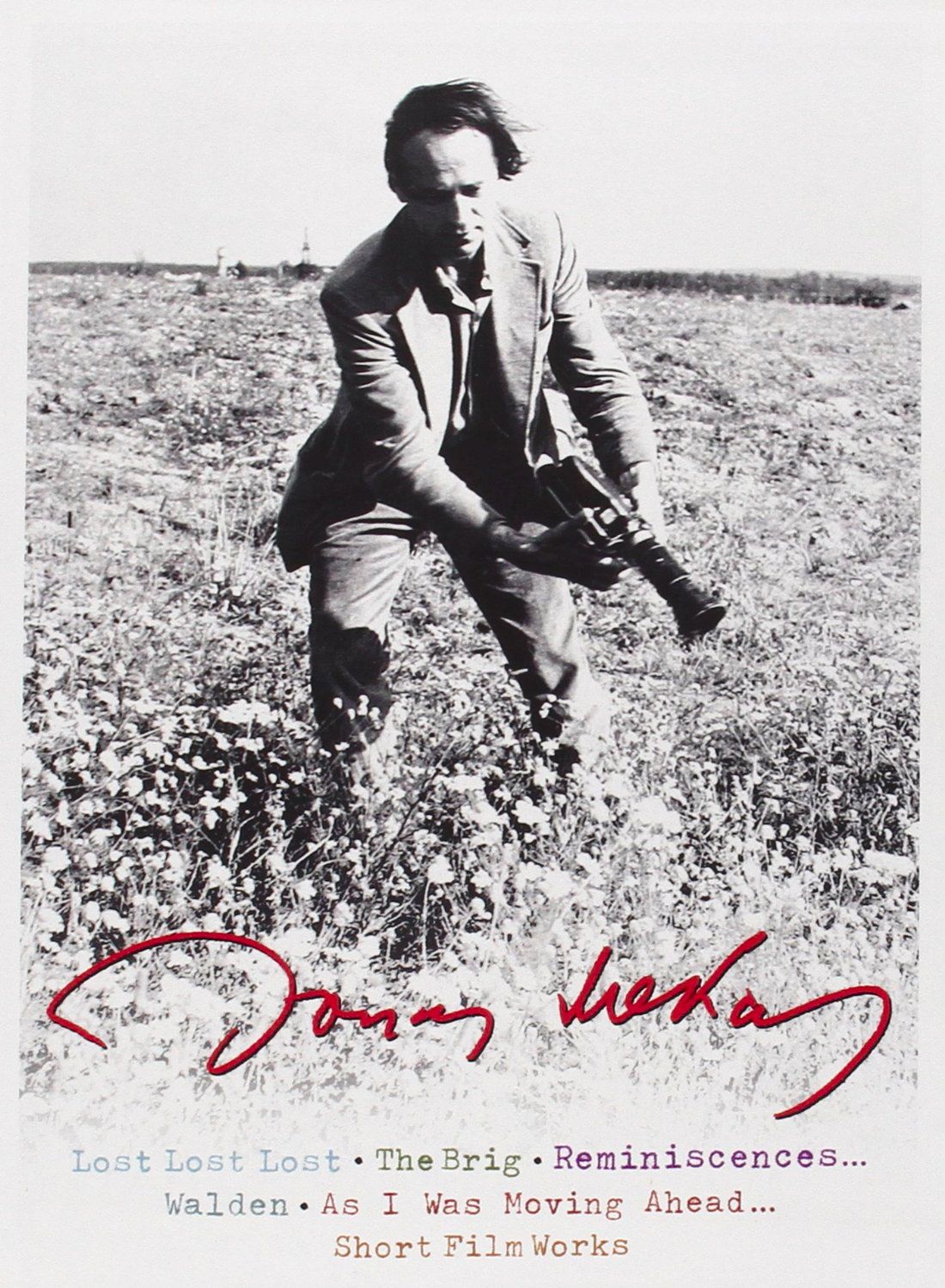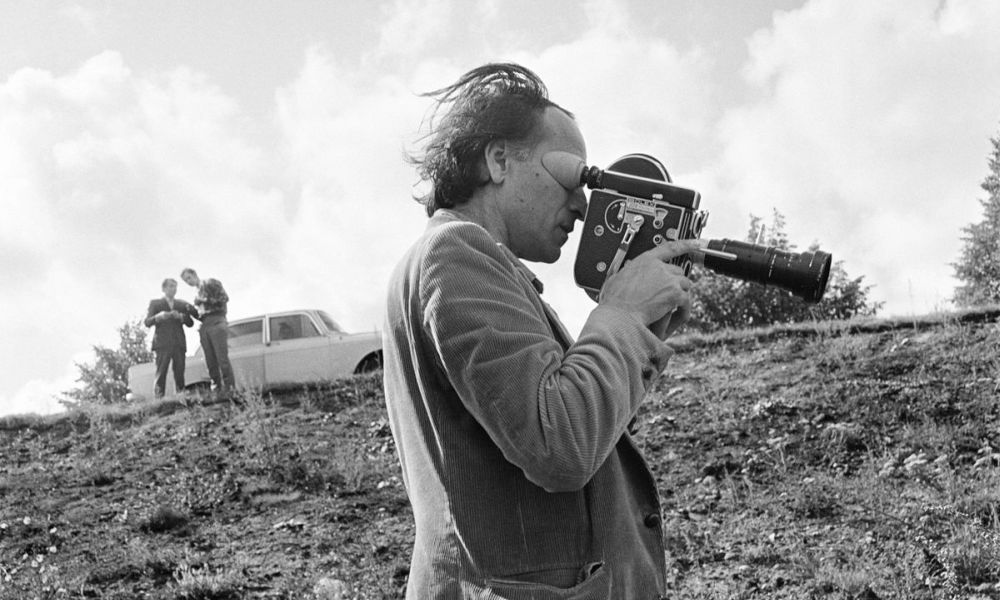"Mekas's contribution to experimental cinema is immense, and his timeless work as an advocate for independent cinema, coupled with his own lyrical, often autobiographical cinema diaries, assures him a place in the pantheon of modern U.S. avant-garde cinema." - Wheeler Winston Dixon (501 Movie Directors, 2007)
Jonas Mekas
Director / Cinematographer / Editor / Producer / Screenwriter
(1922-2019) Born December 24, Semeniskiai, Lithuania
Top 250 Directors / 21st Century's Top 100 Directors
(1922-2019) Born December 24, Semeniskiai, Lithuania
Top 250 Directors / 21st Century's Top 100 Directors
Key Production Country: USA
Key Genres: Documentary, Culture & Society, Short Film, Avant-garde/Experimental, Biography, Sociology.
Key Collaborators: Adolfas Mekas, Peter Kubelka, Ken Jacobs, Ed Emshwiller, Oona Mekas, Hermann Nitsch, Hollis Melton.
Key Genres: Documentary, Culture & Society, Short Film, Avant-garde/Experimental, Biography, Sociology.
Key Collaborators: Adolfas Mekas, Peter Kubelka, Ken Jacobs, Ed Emshwiller, Oona Mekas, Hermann Nitsch, Hollis Melton.
"Born in Lithuania, Jonas Mekas came to the United States in 1950 after years in European displaced persons' camps and became the key organizing figure of New American Cinema, as well as a filmmaker. He was a founder in 1955 and longtime chief editor of Film Culture magazine, which chronicled the underground and avant-garde; an influential columnist on independent film for the New York weekly newspaper The Village Voice; an organizer of the Film-Makers Cooperative in 1961, which distributed independent films, and the Film-Makers Cinematheque in New York in 1963, which exhibited them; and a founder in 1970 of Anthology Film Archives in New York." - Robert Sklar (Film: An International History of the Medium, 1993)
"His first film, Guns of the Trees, a 35-millimeter feature, describes aspects of Beat culture in New York through the lives of four fictional characters. It reflects his hopes, at that time, for the establishment of a feature-length narrative cinema on the model of the French and Polish ‘‘New Waves.’’ By the time he made The Brig with his brother, directly filming Ken Brown’s stage play in the Living Theatre Production as if it were a documentary, he had already shifted his energies to his ongoing cinematic diary. The diary had actually begun in the mid-1950s when he reached the United States, but it took the liberating inspiration of Stan Brakhage and Marie Menken for Mekas to acknowledge that his artistic talent was focused outside of the feature film tradition he had been espousing." - P. Adams Sitney (International Dictionary of Films and Filmmakers, 2000)

Diaries, Notes and Sketches (1969)
"Mekas eschewed narrative and plot. He didn’t have time for the artifice of Hollywood. Why did every scene have to connect to every other from start to finish? And yet there was something traditional in his film-making. He was always interested in capturing those magical moments that make up a life, moments at once prosaic and transcendent. His films often look like home movies – Proustian scraps of memories, children smiling, a day at the seaside, revisiting Lithuania, home cooking, walking through New York. Sometimes footage is speeded up so it becomes dizzying, sometimes it’s slowed down. The camera rarely stops: one continuous shot and that’s that." - Simon Hattenstone (The Guardian, 2019)
"As a filmmaker, Mekas’ work benefits from historical context. With the exception of his incendiary 1964 The Brig, a disturbing hour-long look at U.S. Marines assaulting Japanese prisoners, the bulk of Mekas’ oeuvre was personal — and rarely an easy sit. Yet as he continued to churn out new work well into the 21st century, Mekas found his groove as a storyteller who used the pliable nature of moving images to express his personality. He was a proto-YouTube celebrity who beat YouTube at its own game, collecting snippets of observations and encounters into lyrical representations of his evolving universe. His prolific output yielded a staggering window into his philosophy, lifestyle, and urban surroundings… Mekas was everywhere: in front of the camera, behind it, cheering it on from the sidelines. He shot much of the footage for Andy Warhol’s eight-hour Empire, and wrote at length about the importance of avant-garde works with lively, accessible prose. He befriended every major New York artist, from Allen Ginsberg to John Lennon to Marina Abramovic; he gave seminal critics like Andrew Sarris and J. Hoberman their starts, and inspired filmmakers like David Cronenberg, Martin Scorsese, John Waters, and Harmony Korine." - Eric Kohn (IndieWire, 2019)
"Jonas Mekas is an international treasure – but a very difficult man to categorise. He is a remarkable artist and filmmaker, a poet, a cultural anthropologist, preservationist, curator, visual diarist, literary editor, provocateur – and an irrepressible inspiration." - Jim Jarmusch (BFI, 2012)
Selected Filmography
{{row.titlelong}}
GF Greatest Films ranking (★ Top 1000 ● Top 2500)
21C 21st Century ranking (☆ Top 1000)
T TSPDT R Jonathan Rosenbaum
21C 21st Century ranking (☆ Top 1000)
T TSPDT R Jonathan Rosenbaum
Jonas Mekas / Favourite Films
The Art of Vision (1965) Stan Brakhage, Battleship Potemkin (1925) Sergei Eisenstein, The Birth of a Nation (1915) D.W. Griffith, The Blood of a Poet (1930) Jean Cocteau, Fireworks (1947) Kenneth Anger, The Man with a Movie Camera (1929) Dziga Vertov, Nanook of the North (1922) Robert J. Flaherty, Unsere Afrikareise (1966) Peter Kubelka.
Source: Sight & Sound (1992)
The Art of Vision (1965) Stan Brakhage, Battleship Potemkin (1925) Sergei Eisenstein, The Birth of a Nation (1915) D.W. Griffith, The Blood of a Poet (1930) Jean Cocteau, Fireworks (1947) Kenneth Anger, The Man with a Movie Camera (1929) Dziga Vertov, Nanook of the North (1922) Robert J. Flaherty, Unsere Afrikareise (1966) Peter Kubelka.
Source: Sight & Sound (1992)
Jonas Mekas / Fan Club
Filipe Furtado, Radu Jude, Amy Taubin, Jonás Trueba, Nicole Brenez, Klaus Wyborny, Raúl Camargo Bórquez, Brian Frye, José Sarmiento, Clément Cogitore, Audrius Stonys, Matías Piñeiro.
Filipe Furtado, Radu Jude, Amy Taubin, Jonás Trueba, Nicole Brenez, Klaus Wyborny, Raúl Camargo Bórquez, Brian Frye, José Sarmiento, Clément Cogitore, Audrius Stonys, Matías Piñeiro.
"Fan Club"
These film critics/filmmakers have, on multiple occasions, selected this director’s work within film ballots/lists that they have submitted.
These film critics/filmmakers have, on multiple occasions, selected this director’s work within film ballots/lists that they have submitted.


